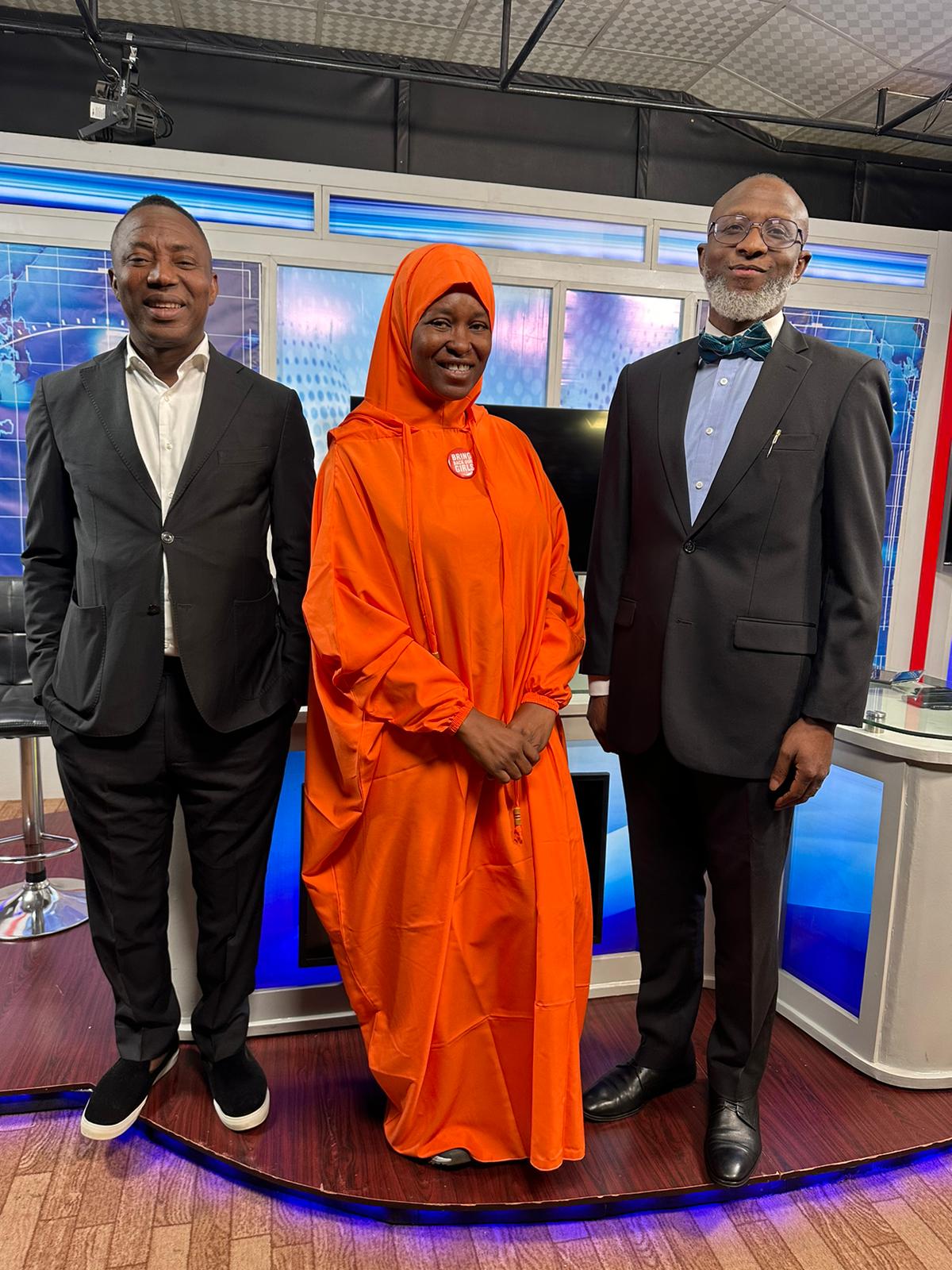Human rights activists Omoyele Sowore and Aisha Yesufu have debated solutions to governance in Nigeria including whether or not the choice of the parliamentary system of government that Nigeria practiced till 1966 is the right way to go.
Sowore and Yesufu were guests on Inside Sources with Laolu Akande which was aired on Channels Television on Friday as the show continued its Conversations on the Future of Nigeria.
The two activists also believe that independent candidacy should be allowed to contest elections as a way forward for the country and for the emergence of to credible leaders who would have the interest of the people at heart.
If the electoral laws or the Constitution allows for Independent Candidacy, political parties won’t be the only ones presenting candidates for elections in the country.
“The beautiful thing about democracy is that it allows for multiple choices. I don’t think we have multiple parties; however, I think we need to have a law that allows for independent candidate so that people who don’t want to be part of the shenanigan of those parties will be able to run,” Sowore said.
“I am not a member of the Labour Party. I see a lot of people make that assumption; I am a supporter because I believe in candidacy more than I do of party, if we have people who can do the work,” said Yesufu, who supported the Labour Party’s Peter Obi in the 2023 presidential poll.
Also, Sowore, who was the presidential candidate of the African Action Congress (AAC) in the 2019 election, said the 2023 poll had high enthusiasm but low voter participation because people are losing faith in the electoral process.
He said political parties have become special purpose vehicles for corruption.
“All the parties that are in Nigeria that have been in power, they are all one – it’s just different uniforms, different addresses and different headquarters. Nigeria is the only country in the world where you can sleep as a PDP member and wake as an APC member,” he said.
“Diaspora voting will also put a lot of pressure on the system,” Sowore said, adding that we have six million Nigerians outside the country and they can take informed decisions without being cajoled.
On her part, Yesufu said, “ the parliamentary system is less expensive and will work better than the presidential system.”
In a parliamentary system, the head of government derives democratic legitimacy from his or her ability to command the support of the legislature. Also, in parliamentary democracy, the head of state and head of government are usually two separate positions, with the former being ceremonial while the latter is not.
Both guests also agreed on the need to cut down the legislature by adopting a Unicameral system rather than the current Bicameral which they said is too expensive and ineffective.
“I personally don’t think Nigeria needs a bicameral legislative system. The Senate alone is okay for Nigeria. Let’s have 109 Senators and let them represent their constituencies,” Sowore said and Yesufu also agreed.
Concluding, the two activists believe that there is hope for Nigeria if good leaders are elected into public offices.
“God has given us the capacity to fix Nigeria and he is not going to do for us what he has given us the capacity to do,” said Yesufu, a view supported by Sowore who said that if the governance space is sanitised of corrupt politicians, credible people with capacities would come out to offer themselves to serve the people of Nigeria. But he warned that sheer hope won’t work by itself urging Nigerians to fight for a better country.”

 Join Daily Trust WhatsApp Community For Quick Access To News and Happenings Around You.
Join Daily Trust WhatsApp Community For Quick Access To News and Happenings Around You.


